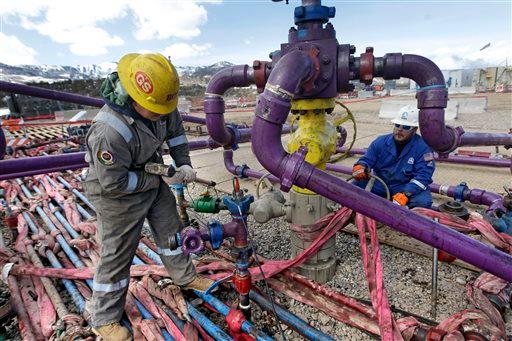While some states in the eastern United States scale back hydraulic fracturing, or fracking, the western United States have increasingly become a focus of the industry.
New York Governor Andrew Cuomo has continually delayed a decision on whether to allow fracking along the Marcellus Shale, citing his uncertainty with potential negative health impacts. And reports say Pennsylvania, once a boon for the fracking industry, has scaled back.
The furor over the method, which enables companies to drill into hard rock and extract natural gas, erupted when a documentary film “Gasland” claimed to show the truly negative impact of fracking, including how tap water near wells would light on fire with a match.
The movement to stop fracking has coalesced around the issue in New York. On April 11, a group of elected officials and advocates gathered at City Hall in New York City to protest allowing fracking in the state. Also, a group of high profile artists has gathered (Artists Against Fracking); and new research has come out supporting claims that fracking has negative impacts. At the same time, some say the continually delayed decision pushes the industry out of the state. On the other hand, one researcher created an answer to “Gasland” in which he says most of its claims are false.
In the west, things are little different. In towns like Rifle, CO, fracking is gradually becoming more common.
Three hours west of Denver, the Rocky Mountains begin the long transition into high desert plateaus. This sparsely-populated land is dotted with ranches and small towns that were once local hubs for mining the rich minerals found under the earth.
But over the past few years, this town and others have become increasingly a local center for the hydraulic fracturing industry. Off the highway outside town in all directions, one can see evidence, large and small, of the latest local energy boom, from natural gas extraction all the way up the chain to refining.
The rapid growth of the oil industry in the region has, too, brought opposition from those who warn of environmental costs. Fracking can release hydrocarbons into groundwater and the chemically tainted, used water can cause air pollution, they say.
Industry officials say a dearth of documented contamination out of 1 million fracking jobs in the U.S. since the 1940s proves the process is safe.
The Associated Press contributed to this report.





